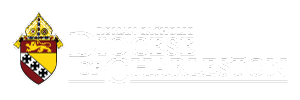Mission Statement
The Diocese of Charleston Office of Archives and Records Management collects, preserves, and makes available non-current diocesan records of permanent administrative, legal, fiscal, and historical value, as well as records of other institutions, personal papers, and publications documenting the history of the Roman Catholic Church within diocesan boundaries. Materials are in a wide variety of formats, including paper documents of various qualities and sizes, journals and ledgers, general and in-house publications, manuscripts, serials and periodicals, photographic media, architectural drawings, scrapbooks, ephemera, and some objects.
Collection Development Policy
The Office of Archives and Records Management only collects materials that meet the standards set forth in its mission statement, as interpreted by the archivist of the Diocese of Charleston. The archivist may choose not to accept material that is outside the scope of this collection policy, in terminally poor condition, or duplicates other items in the collection. Furthermore, the archivist will not accept materials that the office cannot store or maintain, or for which it cannot accommodate the storage and maintenance of the equipment necessary to reference it ad infinitum.
The archivist will acquire materials for the collection through transfer, donation, and purchase. He/she will document the provenance of all accessions or transfers and ensure the integrity and preservation of that documentation. A deed of gift transferring all physical and intellectual property rights to the Diocese of Charleston must accompany all donations. Because donations are tax-deductible under Section 501c(3) of the United States Internal Revenue Code of 1954, the archivist must provide a copy of the deed of gift to the donor and must keep the original on file within the office. If seeking tax deduction, donors are responsible for the independent appraisal of donated materials.
With the approval of the diocesan chancellor, the archivist may deaccession items in the Office of Archives and Records Management collection that do not comply with the standards of its mission statement or this collection policy. If the materials are restricted or contain confidential matter, the archivist will ensure its destruction. If the materials are without restriction, the archivist should first make every effort to place the material in an institution with a more appropriate mission and scope. Second, the archivist should attempt to sell the material. Any funds generated from the sale must be used to benefit the Office of Archives and Records Management. Third, if the deaccessioned item was donated, the archivist should make reasonable effort to offer the materials to the original donor or his/her heirs. As a last resort, the archivist must destroy the material.
Regardless of the method, the archivist must document the final disposition of deaccessioned material and ensure the integrity and preservation of that documentation. In the case of deaccessioning donated materials, the archivist should make a reasonable goodwill effort to advise the donor or his/her heirs of the material’s disposition.
The Office of Archives and Records Management will not accept materials on loan except in the case of exhibition, and then only for the duration of the exhibit. Loan of materials to other institutions may only be done with the expressed permission of the diocesan chancellor after consultation with the archivist.

